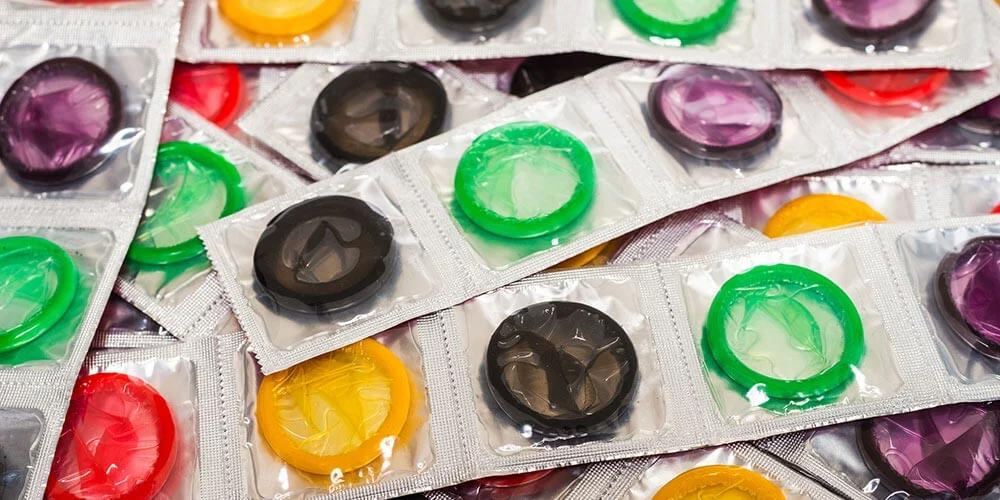Contents
- Sex education in UK schools
- Sex education at home
- Young People’s Sex Education Poll
- 4 easy ways to start talking to your teen about sex
We all know that it’s important that young people are able to have open conversations about consent, sexuality and healthy relationships. But how do you broach these subjects as a parent? And what role does Relationship and Sex Education at school have to play in your child’s overall understanding? 🤷
A new survey by the Sex Education Forum has found that despite government measures to improve sex education in schools, a huge number of teenagers are being left in the dark when it comes to topics like consent, pornography and how to healthily navigate sex.
Let's take a closer look at the findings and discuss how you as a parent can support your teen’s education on all things sex. 👇
Sex education in UK schools
Many parents in the UK probably look back at their own sex education at school with mixed feelings, recalling euphemistic fruit-based demonstrations with a side portion of fearmongering – that is, if they got any sex education at all. 🙅
Various UK governments since have attempted to improve the Relationship and Sex Education (RSE) offer in schools with the latest making RSE classes compulsory in secondary schools from 2017. The ambition was to make these classes more inclusive and wide-ranging too.
By autumn 2020, the Department of Education had put a framework in place which supported the roll-out of these curricular updates. However, Ofsted’s 2021 report identified the ongoing inadequacy of Relationship and Sex Education in the vast majority of school curriculums up and down the country. 😕
Sex education at home
Your child’s process of learning about their own body, sexual preferences, sexual safety, effective communication skills, and how to foster positive attitudes and relationships cannot fall entirely to schools and teachers. Parents and caregivers have a responsibility to educate and guide their own children in these hugely important areas. 👪
We know getting Relationship and Sex Education right isn’t easy, yet reports and studies consistently show that children are clear that they want their parents and carers to have more, open discussions with them.
Ideally, these conversations would go hand in hand with learning the basic building blocks of healthy relationships and respect for others at primary school, with seamless progression to secondary school. 🤝
Young People’s Sex Education Poll
A new survey by the Sex Education Forum – a national charity that promotes and protects the physical and mental health of children and young people by improving their access to RSE – has found that by late 2021, the quality of sex education for most young people had regressed. 🤦
The survey polled just over 1,000 young people aged 16 and 17 years old and living in England – the survey asked respondents what they feel would have improved
their Relationship and Sex Education from school and separately, from parents and carers.
Let’s take a look at some of their key findings:
Sex education at school
When asked about which topics were covered in RSE a worrying picture
is revealed showing that basic, mandatory aspects of the curriculum, such as healthy relationships, and how to access sexual health services are frequently missed. 🧑🏫
- Close to 3 in 10 of young people had not learnt about ‘how to tell if a relationship is healthy, including online’
- More than a quarter had learnt nothing about the ‘attitudes and behaviour of men and boys towards women and girls’
- 46% of young people had learnt nothing about sexual pleasure
- 39% had learnt nothing about ‘gender identity and information relevant to people who are trans and non-binary’
- 36% per cent had learnt nothing about pornography
Sex education from parents
The poll asked young people to tell us what could have improved their sex education experience, and their quotes throughout the report give a crystal clear message that young people want more Relationship and Sex Education, with more depth, discussion and diversity. 👨👦
- For 23% of young people, there has been no RSE from parents and carers, but for those that did receive some it was more often one big talk or a few separate talks
- Only 1 in 6 young people have had RSE at home in the form of regular talks or conversations
- Young people’s message for parents is to start earlier, with more frequent, open and honest conversations
4 easy ways to start talking to your teen about sex
So, the message is clear. When it comes to Relationship and Sexual Education, we are letting our teens down. They need us to support their development, to educate them, to guide them. What’s more, they need us to start those conversations early and to keep them up.
We understand that broaching these topics can seem daunting, sometimes leading to feelings of embarrassment and discomfort but they do still need to happen. So let’s look at some easy ways to start talking to your teen about sex. 🙌
1. Watch TV together
From Eastenders to I May Destroy You and the aptly named Sex Education, your favourite soaps and series’ will cover all sorts of pertinent issues from friendship, to consent, sexual relationships and everything in between. Watching the shows and talking about the characters' experiences can be a great way to open up some of those more sensitive topics without making them feel too personal. 📺
2. Share some books
Similarly to watching TV together, sharing your favourite books and talking about the character’s journeys and experiences will unlock topics that can otherwise feel too intense. There are some brilliant books that tackle the issues more directly too like The Right to Sex by Amia Srinivasan or Boys & Sex by Peggy Orenstein. 📚
3. Look to artists
Artists and curators can offer a different and well-researched approach to the topic of sex and sexual relations. Get yourself over to the Vagina Museum – the world's first bricks and mortar museum dedicated to the gynaecological anatomy – and make sure not to miss exhibitions like Wellcome Collection’s 'The Institute of Sexology' when they come up. 🧑🎨
4. Take a drive
If starting the conversation face-to-face feels a little too daunting at times, we recommend taking a drive. The car is a private space where your teen doesn’t have to look at you but can hear what you have to say. Equally, text messaging may also provide an easy, unintimidating way to reinforce messages discussed in person. 🚗
Our GoStudent tutors believe in the importance of openness, empathy and transparency in education and beyond. Book a free trial lesson to see how we can work with you and your child to boost their confidence and learning outcomes today. 🎒









